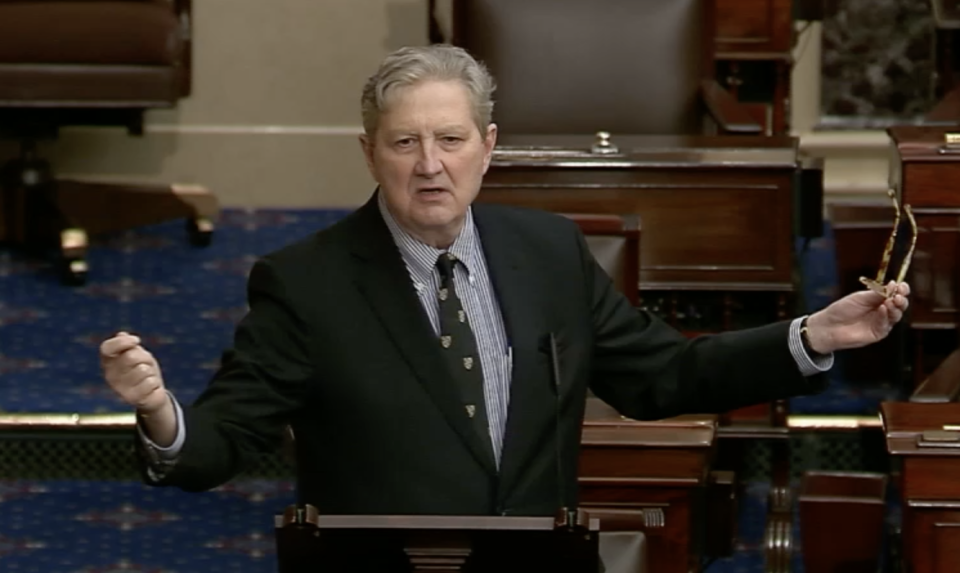
Prospect Bridge opens – for now
March 5, 2013Lafourche voters to decide fate of Vets’ District property tax
March 5, 2013Proposed expansion of Louisiana drug court programs could bring major changes to ways some communities deal with offenders whose crimes are related to substance abuse.
But they are not likely to result in changes to how Tri-parish communities deal with offenders, because such programs have already existed for many years, administrators say.
Gov. Bobby Jindal has expressed support for a number of reforms affecting young people at risk of criminal involvement as well as non-violent adult drug offenders.
Drug court allows offenders who plead to certain charges – in most cases drug related – to address their offense through treatment and intensive supervision rather than incarceration. If the offender does not follow through on program requirements, then incarceration will likely result.
The drug court concept, long and important criminal justice component in Lafourche, Terrebonne and St. Mary parishes, is in Jindal’s eyes a tried-and-true concept.
“Research shows that these offenders are not a threat to public safety when their addiction is treated successfully,” Jindal said in a release. “Instead of ignoring the problems these offenders face, we should be helping them recover so they can safely re-enter their communities and become productive members of society instead of repeat offenders.”
According to Jindal’s office, drug courts have a recidivism rate of 3.2 percent, compared to 30 percent for offenders who are incarcerated.
Drug courts are highly regarded by criminal justice experts nationwide, although there are concerns about such an important treatment-related regimen being offered through the criminal justice system, with criminal justice funding, rather than through health programs. Medicaid-based treatment, a viable option for people with drug problems who wish to seek help before they are enmeshed in the criminal justice system, could become less available as Louisiana continues health care cuts. The governor’s statements on drug treatment through drug court make no mention of how Louisiana’s financially crippled health care system might approach drug addiction issues separate and apart from the criminal system.
Jindal’s proposal would expand drug courts to judicial systems that don’t have them, in some cases expanding the criteria for admission.
Eligibility criteria for those new programs would include conviction of possession or possession with intent to distribute under $500, completion of a chemical dependency evaluation and pre-sentencing eligibility ruling and input from prosecutors.
Fred Duplechin, administrator of Lafourche Parish’s drug court, said he is well aware of the good that can be done through such programs, and that creating new drug courts in other places can only serve to strengthen the good already being done.
“I am excited about any kind of initiative to improve, to increase the network of drug courts, to increase the numbers and provide quality rehabilitation rather than incarceration,” Duplechin said.
“The fact that he wants to expand it is a good thing,” Terrebonne Drug Court Coordinator Danny Smith said of the governor’s recent comments. “It would encourage defense attorneys and the district attorneys offices to look at effective options.”
In Terrebonne Parish, there were 57 drug court participants at the start of 2012, and during the course of that year 20 new clients were inducted.
There were six graduates during 2012 – most or all who had entered the program during earlier years. During that same year, six clients were revoked and nine otherwise dropped the program, either because of medical discharges, death or transfers to other jurisdictions. In dollars and cents, that means at least six people last year who could have done jail or prison time of three years or more were spared the experience and the state was spared the expense.
The program in Terrebonne operates on a $335,500 annual budget.
The estimated cost of keeping someone in the Louisiana prison system is $40 per day, according to studies done by the Pew Research Center and other entities. That means that if the six 2012 graduates were imprisoned rather than sent to drug court and successfully completing, the cost of keeping them locked up would have been around $14,000 each, for each year of incarceration. That comes to more than $87,000 for one year, for the entire graduated group. If each of those defendants received a 3-year sentence in prison, the cost would thus approach $300,000. That’s not counting additional costs or, as criminal justice experts point out, the cost to innocent people who might have been victims of crimes.
The overall local economy benefits, drug court administrators say, from the increased productivity of people spared a further life of indolence and potentially are in the work force.
Jindal’s plan calls for new drug courts to offer treatment via a cooperative effort with the Department of Corrections. In Terrebonne and other parishes operating their own drug courts, independent treatment centers with their own staff, funded by the parish.
In Terrebonne as elswhere, the District Attorney’s Office picks up a lot of the tab.
Drug court administrators and coordinators said that even when offenders fail, enough of a seed is often planted for later attempts at recovery to have a greater margin of success.
Having the program as an incarceration alternative, they say, makes sense.
“Send somebody to jail they are only going to become better criminals,” Duplechin said.
Transportation worker Jesse Story says Terrebonne Parish Drug Court was a gateway that helped him beat an addiction and renew ties with his family. At his home in Bourg with twin 6-year-old sons Luke and Blake.








